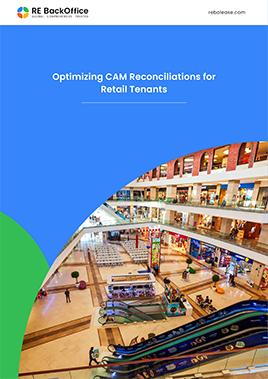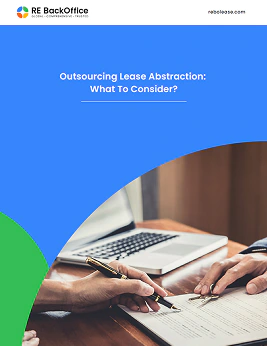
In the realm of commercial real estate leasing, the Use Clause stands as a pivotal element, defining the permissible activities and restrictions within leased premises. This clause not only delineates the scope of tenant operations but also safeguards the interests of landlords by ensuring that leased properties are utilized in a manner consistent with their intended purpose. This article delves into the nuances of the Use Clause, exploring its significance, components, negotiation strategies, and industry-specific considerations.
What is a Use Clause?
A Use Clause is a contractual provision within a commercial lease agreement that specifies how a tenant can use the leased space. It outlines permissible activities, restrictions, and any conditions under which the premises may be utilized. Essentially, it serves as a blueprint for tenant conduct within the property, ensuring that activities align with the landlord's expectations and any legal or regulatory requirements.
Types of Use Clauses
Use Clauses can vary widely in scope and specificity:
- Broad vs. Specific Use Clauses: Broad clauses offer flexibility by allowing a wide range of activities, while specific clauses narrowly define permitted uses.
- Permitted Use vs. Conditional Use Clauses: Permitted Use Clauses outrightly allow specified activities, whereas Conditional Use Clauses impose conditions or restrictions.
These distinctions are crucial as they dictate the extent of tenant rights and obligations under the lease agreement.
Key Elements of a Use Clause
A typical Use Clause includes:
- Description of Permitted Use: Clearly defines the activities allowed within the premises.
- Restrictions and Limitations: Enumerates activities that are prohibited or subject to conditions, such as noise levels, hours of operation, or environmental considerations.
- Provisions for Changes or Amendments: Specifies procedures for modifying the Use Clause to accommodate evolving business needs or regulatory changes.
Importance of a Well-Defined Use Clause
Clarity in the Use Clause is paramount for several reasons:
- Legal Implications: Ambiguous or poorly defined clauses can lead to disputes or legal challenges.
- Alignment with Business Needs: Ensures that leased premises adequately support tenant operations and growth.
- Negotiation Leverage: Provides a framework for constructive negotiations between landlords and tenants, balancing flexibility and certainty.
Negotiating the Use Clause
For tenants:
Advocate for flexibility to accommodate future business expansion or operational changes. Seek clarity to avoid potential conflicts over permissible activities.
For landlords:
Safeguard property value by imposing reasonable restrictions that preserve the integrity of the premises.
Use Clause in Practice: Industry-Specific Considerations
Understanding these nuances is crucial for both landlords and tenants to navigate lease agreements effectively.
Different sectors have unique considerations:
- Retail Leases: Focus on zoning regulations, competition clauses, and tenant mix requirements.
- Office Leases: Address implications for coworking spaces, remote work policies, and building amenities.
- Industrial Leases: Emphasize operational needs, environmental compliance, and safety protocols.
Legal Challenges and Disputes
The Use Clause plays a critical role in commercial lease agreements, yet its interpretation can often lead to disputes and legal challenges:
- Ambiguity and Interpretation: Ambiguous language in Use Clauses can create uncertainty about permissible activities, leading to disagreements between landlords and tenants. For example, vague terms like "retail use" may be interpreted differently by each party.
- Court Rulings and Precedents: Legal disputes over Use Clauses often result in court rulings that set precedents for future cases. Case studies, such as landmark decisions involving conflicting interpretations of Use Clauses, illustrate the importance of precise drafting and negotiation.
- Consulting Legal Professionals: To mitigate legal risks, landlords and tenants should seek guidance from experienced real estate attorneys during lease negotiations. Legal experts can clarify terms, anticipate potential disputes, and draft Use Clauses that withstand legal scrutiny.
Economic Impact and Market Trends
Economic factors and market dynamics significantly influence the negotiation and interpretation of Use Clauses:
- Property Valuation: Use Clauses impact property valuation by defining the type and intensity of permissible activities. For instance, a retail space with restrictive Use Clauses limiting tenant operations may have lower market value compared to a versatile commercial space.
- Rental Rates and Lease Terms: Market trends, such as supply and demand fluctuations, influence rental rates and lease terms negotiated under Use Clauses. During economic downturns, tenants may seek flexible Use Clauses to adapt to changing business conditions, while landlords may impose stricter terms to protect property value.
- Global Events and Economic Shifts: Events like economic recessions, technological advancements, or regulatory changes can reshape tenant demand and influence Use Clauses. For example, the rise of remote work due to the COVID-19 pandemic has prompted tenants to reconsider office space requirements, impacting lease negotiations and Use Clause provisions.
Sustainability and Environmental Considerations
Increasing emphasis on sustainability practices has prompted landlords and tenants to incorporate environmental considerations into Use Clauses:
- Green Building Certifications: Use Clauses may require compliance with green building certifications, such as LEED (Leadership in Energy and Environmental Design), to promote energy efficiency and environmental sustainability.
- Waste Management and Recycling: Use Clauses often include provisions for waste management practices, recycling programs, and sustainable operations to minimize environmental impact
- Regulatory Compliance: Compliance with environmental regulations, such as emissions standards or water conservation measures, may be mandated within Use Clauses to ensure sustainable property management practices.
Technology and Innovation
Technological advancements and innovations influence the scope and implementation of Use Clauses in commercial leases:
- Tech-Driven Use Clauses: Use Clauses may incorporate provisions for emerging technologies, such as data centers or telecommunication infrastructure, to accommodate modern business needs.
- Smart Building Technologies: Use Clauses may address the integration of smart building technologies, including IoT (Internet of Things) devices and automated systems, to enhance operational efficiencies and tenant amenities.
- Future Workspace Trends: Anticipated trends in workspace design, influenced by technological advancements, may shape Use Clauses to support flexible work arrangements, collaborative spaces, and tenant-driven innovations in building management.
The Use Clause serves as a cornerstone of commercial real estate leases, providing clarity and structure to tenant-landlord relationships. By understanding its components, negotiating effectively, and considering industry-specific factors, stakeholders can mitigate risks and optimize opportunities within lease agreements. Professional advice and proactive engagement are essential in drafting and interpreting Use Clauses that align with both business objectives and regulatory compliance.


